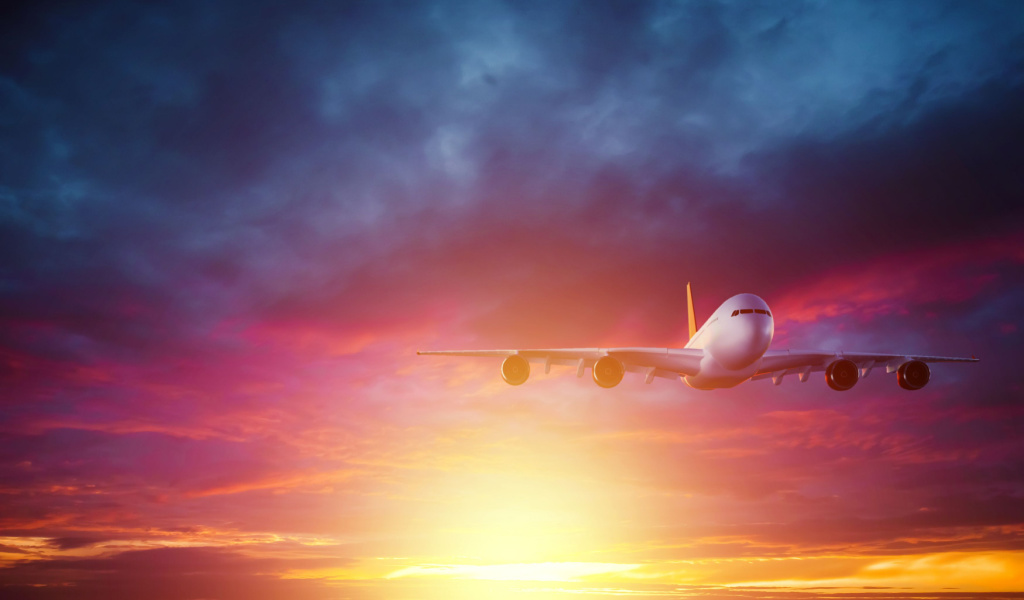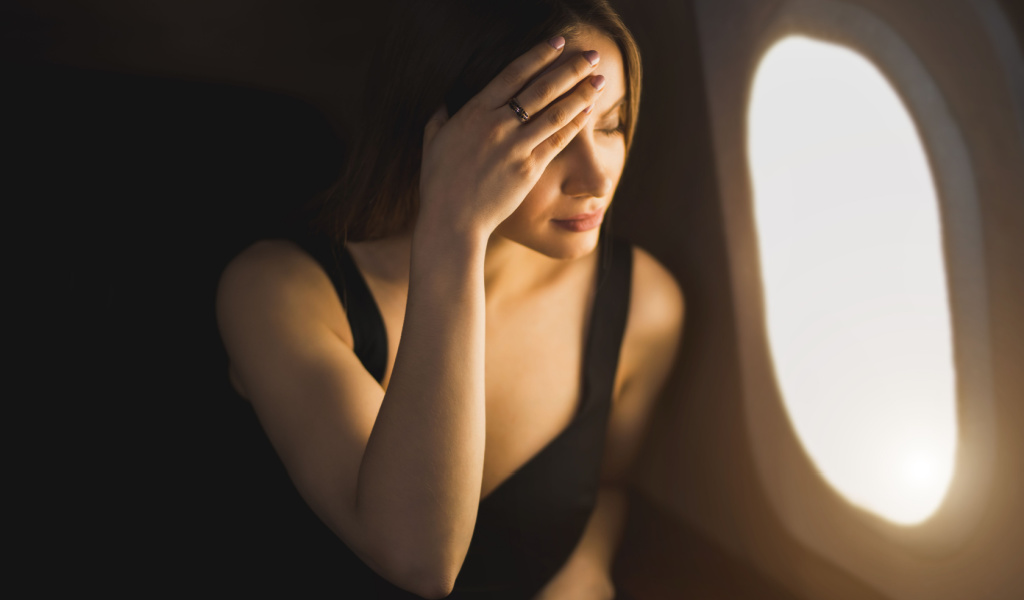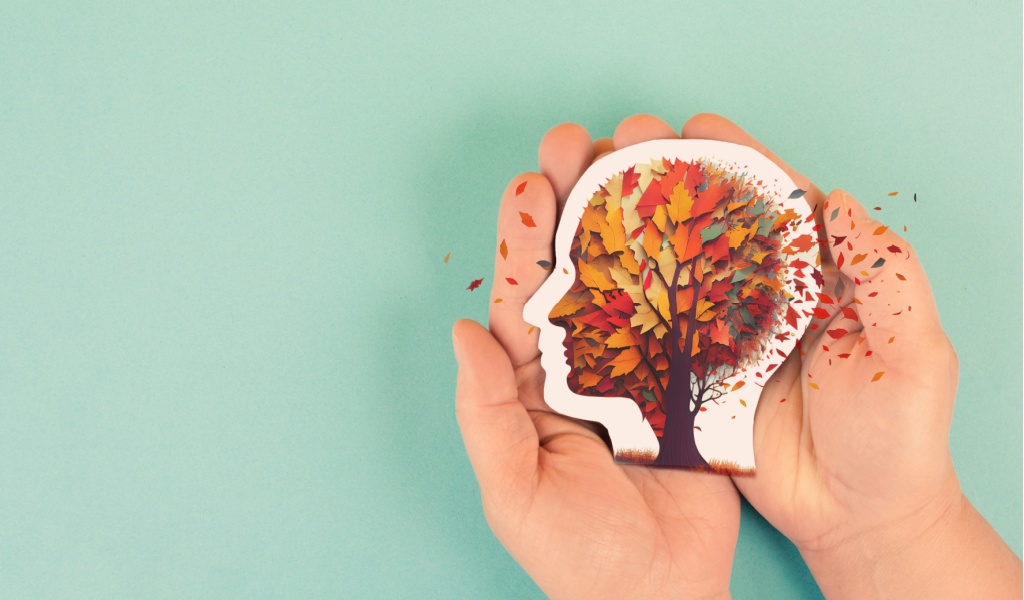Are you feeling anxious about an upcoming trip through air travel? You’re not alone! In fact, about 40% of people around the world and 1 in 4 Americans are nervous fliers, although only a tiny minority of them have a severe fear of flying, known as aerophobia. The Anxiety and Depression Association of America says that many fliers report feeling ill or experiencing a panic attack before take-off or once they’re airborne.

Airplanes are one of the safest modes of travel available today, and most people would agree. However, repetitive news cycles that sensationalize tragedies and an active imagination can be very effective in causing panic. Specific stimuli can also trigger flight anxiety, be it a bodily sensation, a noise, a smell, or a bad memory. By preparing yourself, you can stay calm and handle these triggers without panicking.
For some people, the fear of flying may be triggered or compounded by other worries, such as claustrophobia, agoraphobia, and acrophobia. In such cases, you may need to seek help from a mental health professional. However, if you’re just nervous about flying, there are certain things you can do yourself to help yourself relax and get through the journey. Let’s discuss them further below.
Fight Fear with Facts
Most people acknowledge their fear of flying is irrational, but they just can’t help how they feel. One way to combat this is to gather as many facts as possible. You can read about flight safety requirements and statistics related to flight travel. The National Transportation Safety Board’s website is a great source to discover how uncommon plane accidents are.
The fact is that we do far more dangerous things than flying in our day-to-day lives. To put things in perspective, your chances of dying in a car crash are 1 in 1.3 million, whereas the likelihood of death due to a plane crash is 1 in 11 million!
Avoid Triggers
Identifying what it is that is making you so nervous about flying can help you evade the triggers. One thing you can avoid is turning on the news or tuning into any content related to previous flight accidents before the date of your trip. What these do is hyper-focus on the one or two tragedies of flight travel, inviting you to disregard the overwhelming information about how safe it is.
Focus on the Destination
Have you ever heard someone say, “It’s the journey that matters, not the destination”? Well, when it comes to nervous fliers, the opposite is true! Focus on the positive side of the journey by visualizing yourself at your destination, either with a photo or by closing your eyes and imagining it. Remind yourself that the flight is only a small part of your trip and will be over soon. You can also imagine yourself in a safe place, be it your childhood home or a sunny beach – whatever it takes to take your mind off of where you are!
Get Familiar with Safety Instructions
The chances of your plane crashing or ending up in an emergency are pretty small. Still, it may help alleviate your flight anxiety if you are prepared to handle every situation. Familiarize yourself with the safety information from the provided safety card and be clear about what you’ll need to do in an emergency. If it puts your mind at ease, you could even request a seat at the back of the plane – as this has been proven to be the safest part of the aircraft in the event of a crash.

Take a Few Deep Breaths
Breathing techniques are one of the most effective methods of combating anxiety, no matter the situation. This is because stress causes your breathing to become shallow, which triggers anxiety and forces your heart to beat faster, and so on. Irregularities in your breathing can trigger your fight-or-flight response, which brings about fear and panic.
If you are feeling anxious during your flight, concentrate on your breathing. Focus on your navel, the body’s center of action and energy, and take a few deep breaths. This will help you get in touch with your body, eliminate unwanted thoughts, and help you relax. You can find a deep breathing guide meant to combat stress from the National Health Service.
Distract Yourself
Most planes will have in-flight entertainment, but if you are a nervous flier, it’s best to come prepared with plenty of options for distraction. Instead of sitting in your seat and waiting anxiously for it to be over, engross yourself in a good book or movie that will transport you to a different place. Listen to an excellent podcast to take your mind off flying, or use this time to catch up on some work. Or you might prefer listening to your favorite songs to drown out the ambiance and soothe your thoughts.
It can also help to talk to the people around you, especially if you’re traveling with friends and family. If your neighbor seems open to conversation, you could pass the time getting to know each other. Or you can introduce yourself to the flight attendants and tell them about your flight anxiety – most will be happy to help you through it!
Take a Nap
Admittedly, sleeping in an airplane seat isn’t the most comfortable thing, but falling asleep can help you get through the entire journey without worrying your way through it. Put on noise-canceling headphones or play soothing sounds, slap on an eye mask, and catch some z’s. This way, you’ll also be well-rested when you land!
Choose Your Beverages Wisely
It’s essential to stay hydrated during your flight because airplane cabins typically have very low humidity, but don’t drink so much water that you must run to the bathroom every half hour. Walking in an airborne plane isn’t going to help your anxiety!
But if you want something to drink, you should stick to water or fresh juices. Whatever you do, do not be tempted to take the edge off with a cup of coffee or a cocktail! Caffeine and alcohol can leave you feeling more dehydrated and bring on various issues, from headaches and nausea to nervousness and anxiety. And while you’re at it, don’t fill up your tummy before a flight, either. A light pre-flight meal would be ideal. You can carry an apple, yogurt, nuts, or dried fruit as a snack.



